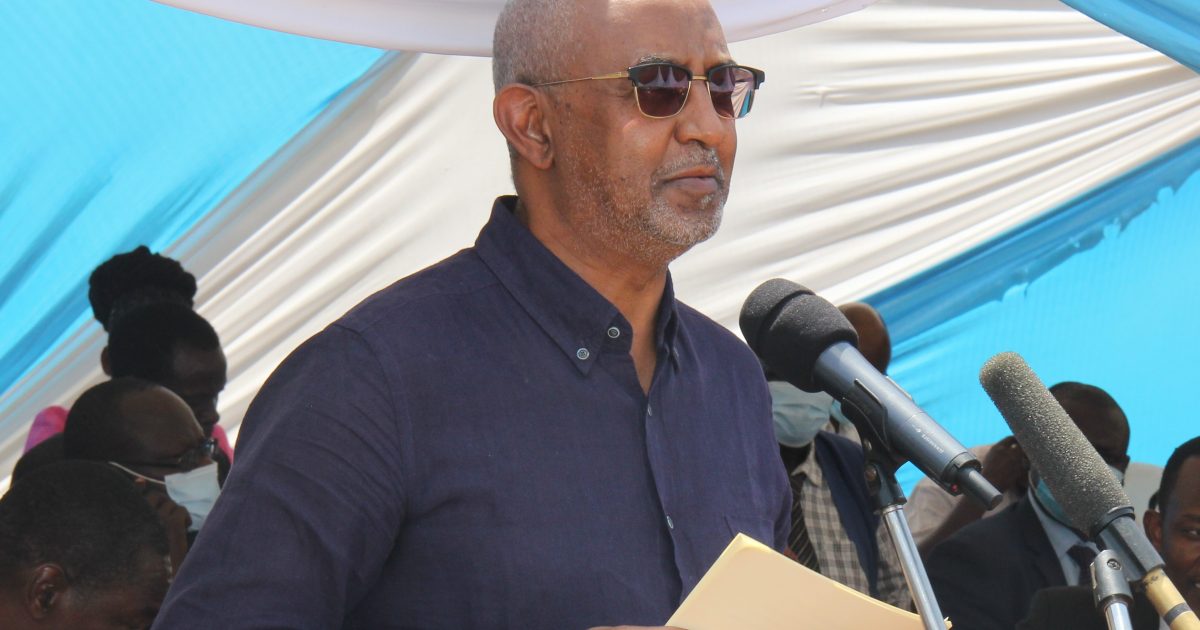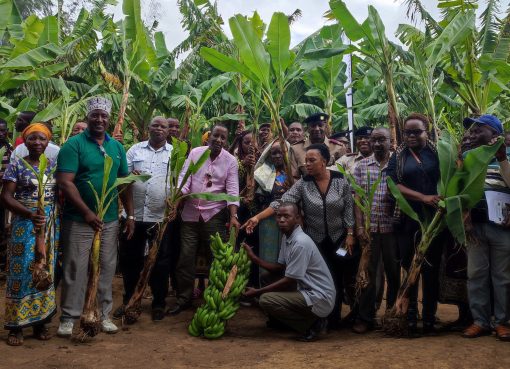The Chief Administrative Secretary in the Ministry of Health Dr. Rashid Aman led the country in celebrating 10 years of deworming under the National School-Based Deworming Programme (NSBDP), jointly led by the Ministry of Health and the Ministry of Education with technical support from the global non-profit Evidence Action at Mundika Boys Primary in Busia County.
The country targets to deworm over 6 million children across all the 27 counties. In Busia over 297,000 children under the age of 14 will benefit from the program.
Speaking during the NSBDP, Dr. Aman noted that children aged 2-14 years, regardless of their enrollment status, are provided with free deworming treatment by teachers at schools. Treatment is conducted in at-risk areas for two types of parasitic worm infections, soil-transmitted helminths and schistosomiasis, which are neglected tropical diseases that impede children’s health and access to education.
With 2022 marking the tenth year of deworming, the NSBDP has to date conducted a total of 9 rounds of school-based deworming treatment, reaching up to 6 million children annually across 27 counties.
“Busia was a site of ground-breaking research that informed on global and national programs on benefits of deworming school aged children. Intestinal worms are a major public health problem in Kenya. At least 6 million children are at risk of infection yearly. Worm infestation in children causes malnourishment despite being fed the correct diet,” said CAS Aman.
His sentiments were echoed by the Secretary Admiration in the ministry of Education Andrew Lukalia, Early Learning & Basic Education, at the Ministry of Education, who noted that School-based treatment gives millions of Kenyan children a worm-free childhood, with lifelong benefits for their health and livelihoods.
Lukalia added that Proper childhood nutrition lays the foundation for children to learn, thrive, and grow into healthy adults. Yet worldwide, close to 900 million children are at risk of infection with soil-transmitted worms or helminths (STH), with many at dual risk for schistosomiasis too.
“Research shows that if deworming is not done, there is up to 25 per cent absenteeism by learners, something which greatly affects their overall performance,” noted Lukalia on behalf of PS education.
The National School-Based Deworming Programme is a Kenya Vision 2030 flagship program which has provided over 53million School going children since 2012. In 2021 alone 6.4 million were treated under the program across 21 counties.
“The government remain committed as it creates in build sustainable strategy to support technical and expertise. In addition to us allocating funds for deworming, we are also going further to ensure that all the resources of the government that are directed towards procuring dewormers, go to local manufacturers,” said the Dr. Aman.
This year, the NSBDP aims to achieve deworming across 27 counties and 112 sub counties, targeting 5.7 million children. The Ministry of Health is procuring a record 5.9 million Albendazole tablets for the treatment.
Since 2009, the program has consistently treated over 6 million children in the targeted age bracket, in both public and private primary schools and Early Childhood Development. All children in targeted areas, regardless of their enrollment status, are able to receive treatment for free. The medicines are safe, effective, and recommended by the World Health Organization.
In Kenya, school-based mass deworming has reduced school absenteeism by 25% for those in treatment schools. Furthermore, deworming has spillover effects for untreated school-age and preschool children. In Kenya, young siblings of those treated, as well as children who live nearby treatment schools but are too young to be dewormed, shows gains in cognitive development equal to half a year of schooling when evaluated ten years later.
By Absalom Namwalo





